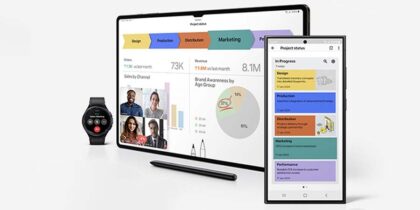Digital banking consumers want the savings of robo-advice — where fees are less than half of what personal financial advisors charge — but they also want to talk to someone in person when they need to, according to Accenture’s 2016 North America Consumer Digital Banking Survey. This combination offers great potential for collaborative ingenuity at banks, whose branch networks could combine the online banking experience with personal consultation. But while robo-advisory firms are gaining customers and several major mutual fund companies have developed their own robo-advisors, retail banks are still thinking about what to do for their customers. And they need to act fast: the survey found that 46 percent of consumers are willing to use robo-advisors.
Support From Millennials Is High
Millennials are enthusiastic about computer-generated advice because it can deliver interactions that are simple, consistent and relevant, the study says. Millennials also have less complex finances, so robo-advice on topics like asset allocation is often sufficient for them. More complex topics, such as using 529 accounts for college savings, tax strategies and retirement planning, may take more personalized evaluation.
But despite the high level of interest, the difficulty banks have in offering robo-advice to their customers goes beyond finding the right technologies. They also need to figure out the best pricing, and how to offer computer advice without creating channel conflict. Even with all the talk about multichannel, omnichannel or, more recently, optichannel delivery of services, the study found that only 27 percent of consumers say their experience across their banks’ channels is completely seamless, down 7 percentage points in just one year.
Mutual Fund Companies Are Taking the Plunge
Several mutual fund companies recognized the threat from robo-advisors more than a year ago. Charles Schwab and Vanguard both developed hybrid models that combine computer advice with access to an advisor. Fidelity teamed up with Betterment, a leading robo-advisor, for a time before developing its own robo-advisor. BlackRock and Goldman Sachs also acquired robo-advisor companies. But many of the largest retail banks are still just thinking about the robo route.
Retail banks have branches, so they’re well positioned to provide the mix of computerized and personal advice that digital banking customers want. Accenture predicts that “the branch of the future will pivot from rote transaction processing to high-end servicing, seamlessly combining person-to-person and digital banking experiences.” The vast majority (87 percent) of consumers, including 86 percent of millennials, report that they will use the branch in the future.
However, banks are falling behind mutual funds and pure robo-advisors. They must develop an integrated channel approach to banking, investments, robo-advice and personal advice through their branches before it’s too late.
Find out here how robo-advisors are also making waves in the world of millennial investing by making it cheaper and easier than working with traditional financial advisors.







